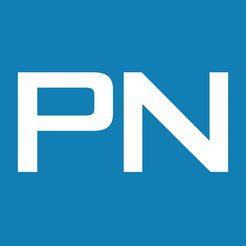Veterans service organizations concerned funding will fall short to meet veteran health care demands

Disabled American Veterans (DAV), Paralyzed Veterans of America (PVA) and Veterans of Foreign Wars (VFW)—authors of The Independent Budget (IB)—today responded to the Administration’s proposed budget for the delivery of health care for the Department of Veterans Affairs (VA) for FY 2018 and advance appropriations for FY 2019. The Independent Budget Veterans Service Organizations (IBVSOs) entered a statement for the record at today’s hearing before the House Committee on Veterans’ Affairs.
“We appreciate the fact that the Administration’s budget request just released includes some increases in discretionary dollars for the Medical Care accounts,” stated the IBVSOs. “However, it is important for us to address the notion that VA does not need any additional resources, based on the expansive growth of overall VA expenses in the last 10 years. These ideas are not grounded in thorough analysis of demand and utilization of VA health care.”
The IBVSOs released a report on VA’s funding requirements in February 2017warning that a potential funding crisis could arise before the end of FY 2017, and would exist in FY 2018 if VA did not address the new community care demand it has fostered without necessary resources. For FY 2018, The Independent Budget recommended approximately $77 billion in total medical care funding. Congress previously approved only $70 billion in total medical care funding for FY 2018, which included an assumption of approximately $3.6 billion in medical care collections.
“Last year’s advance appropriation request for FY 2018 medical care remains woefully inadequate to meet the ever-increasing demand for services both inside and outside the VA health care system, a fact acknowledged by VA officials. The Administration’s budget request includes a not-insignificant overall medical care funding recommendation of approximately $75.2 billion however, we remain concerned that this level of funding will not keep pace with the continually increasing demand and utilization.”
The IBVSOs expressed specific concern for the funding of the Choice Care program, which calls for a combined $6.4 billion for FY 2018-19 which would indefinitely continue the program as currently implemented. The IB’s recommendations for FY 2018 took into account the estimated $1 billion VA was expected to have remaining in the Veterans Choice Fund and anticipated increases in demand for care, including community care, that will not diminish or go away if the Choice Program expires. As such, for FY 2018, The Independent Budget recommended $64.5 billion for Medical Services.
This recommendation included:
Current Services Estimate…………………………………………… $60,897,313,000
Increase in Patient Workload…………………………………………$1,595,242,000
Additional Medical Care Program Cost………………………….. $2,001,000,000
Total FY 2018 Medical Services…………………………………. $64,493,555,000
“Congress must reject continued funding of the Choice Care program through a mandatory account. We recommend adhering to all other community care funded through the discretionary Community Care account established previously. This will eliminate competing sources of funding for delivery of health care services in the community, while maintaining visibility on spending through the Choice program,” the IBVSOs said.
The IBVSOs also strongly objected to two legislative proposals included in the budget; one that would penalize millions of disabled veterans or survivors by rounding down cost-of-living adjustments (COLAs) for recipients of VA disability compensation and certain other benefit programs; and the other to cutoff eligibility to recipients of disability compensation due to individual unemployability (IU) once they reach age 62.
“We are adamantly opposed to a 10-year round down of veterans’ disability compensation, which would have the cumulative effect of taking $2.7 billion away from injured and ill veterans who rely on such payments. We are equally opposed to arbitrarily cutting off eligibility for IU for veterans who turn 62, an age at which millions of Americans continue working and saving money for their retirements, a luxury that many disabled veterans do not have. Congress must reject any proposals that seek to shift the cost of VA health care or benefits onto the backs of disabled veterans,” said the IBVSOs.
To read the complete statement entered by the IBVSOs to the House Committee on Veterans Affairs, click here.
For more than 30 years, the three Independent Budget co-authors have presented budget and policy recommendations to Congress and the Administration. These recommendations—which are supported by 27 other health, family, military and veteran service organizations—are meant to inform Congress and the Administration of the needs of all veterans, and to offer substantive solutions to address the many health care and benefits challenges they face. This budget serves as the veterans groups’ benchmark for properly funding the Department of Veterans Affairs to ensure the timely delivery of quality health care and accurate and appropriate benefits.
To view the full budget report, please visit www.independentbudget.org.



